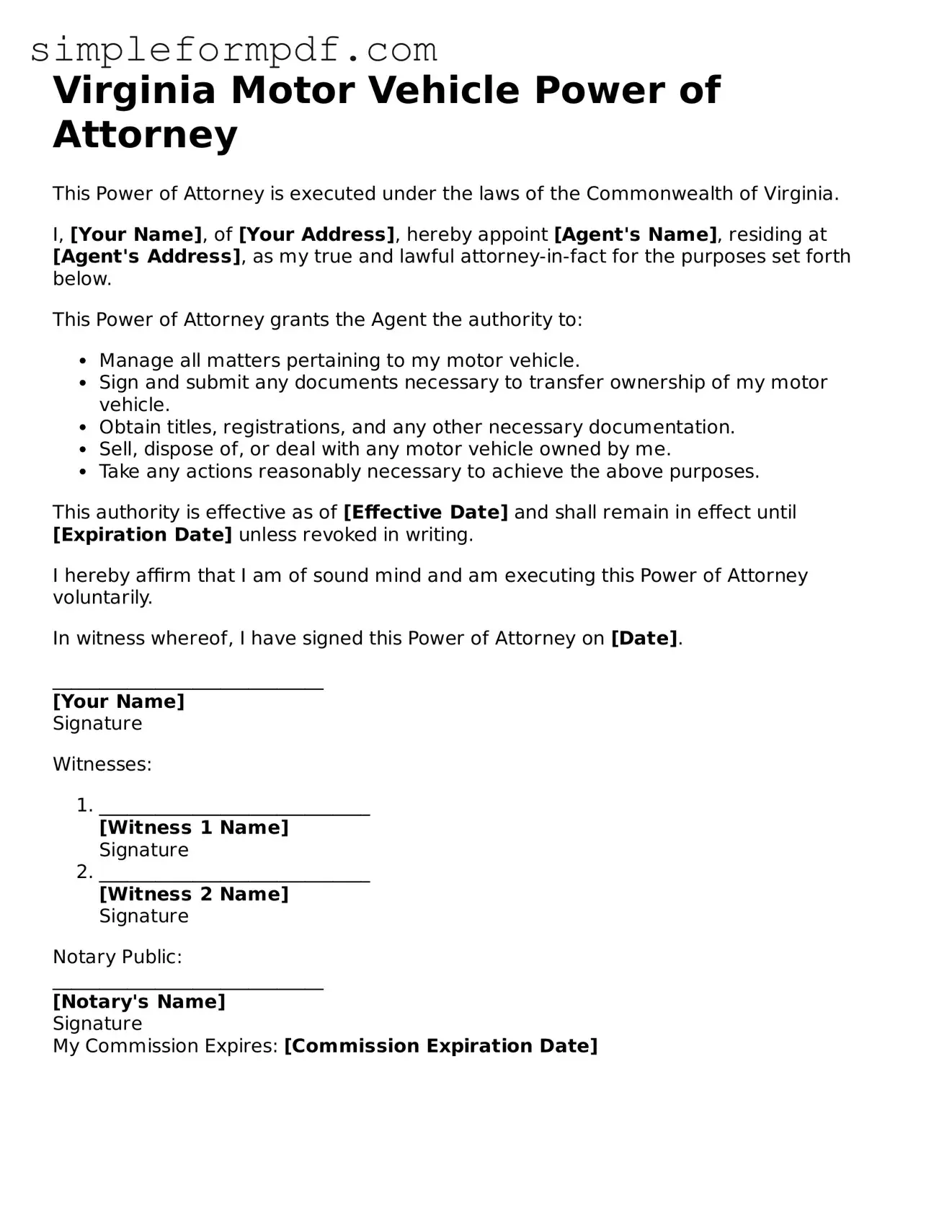Free Motor Vehicle Power of Attorney Form for the State of Virginia
The Virginia Motor Vehicle Power of Attorney form is a legal document that allows an individual to designate another person to handle specific motor vehicle-related transactions on their behalf. This form is particularly useful for those who may be unable to manage these tasks due to time constraints, health issues, or other reasons. If you need to grant someone the authority to act in your stead, consider filling out this form by clicking the button below.
Launch Editor

Free Motor Vehicle Power of Attorney Form for the State of Virginia
Launch Editor
Need instant form completion?
Finish Motor Vehicle Power of Attorney online in just a few minutes.
Launch Editor
or
Download PDF
